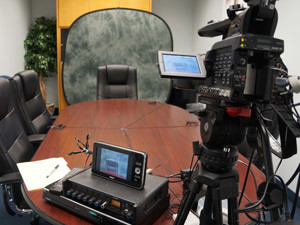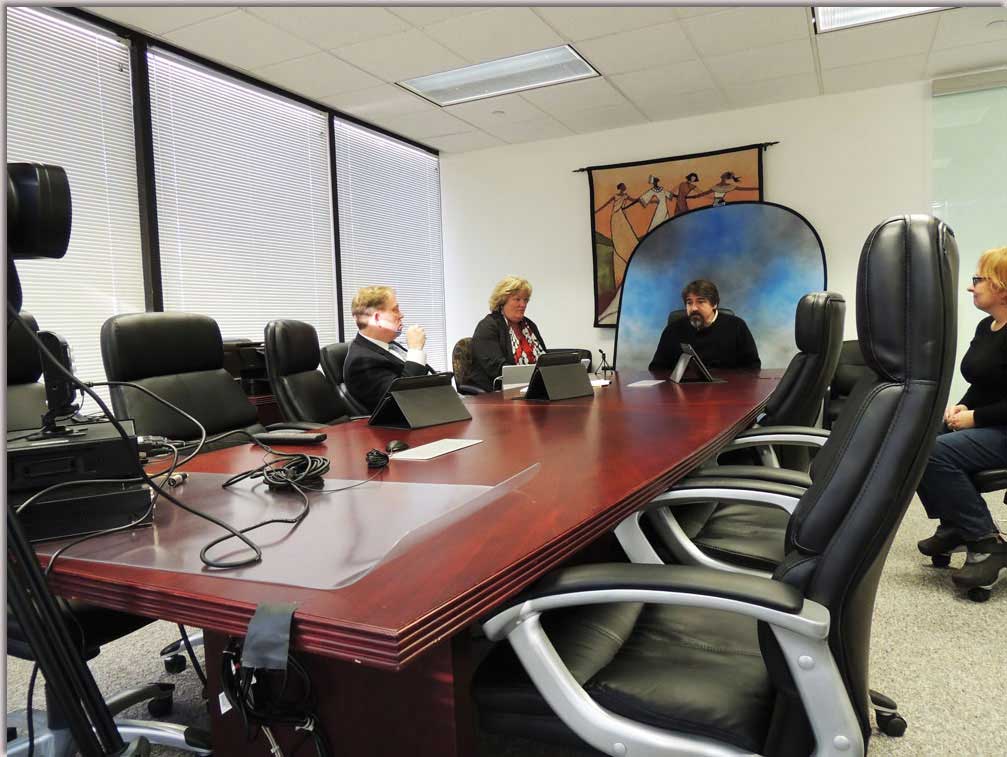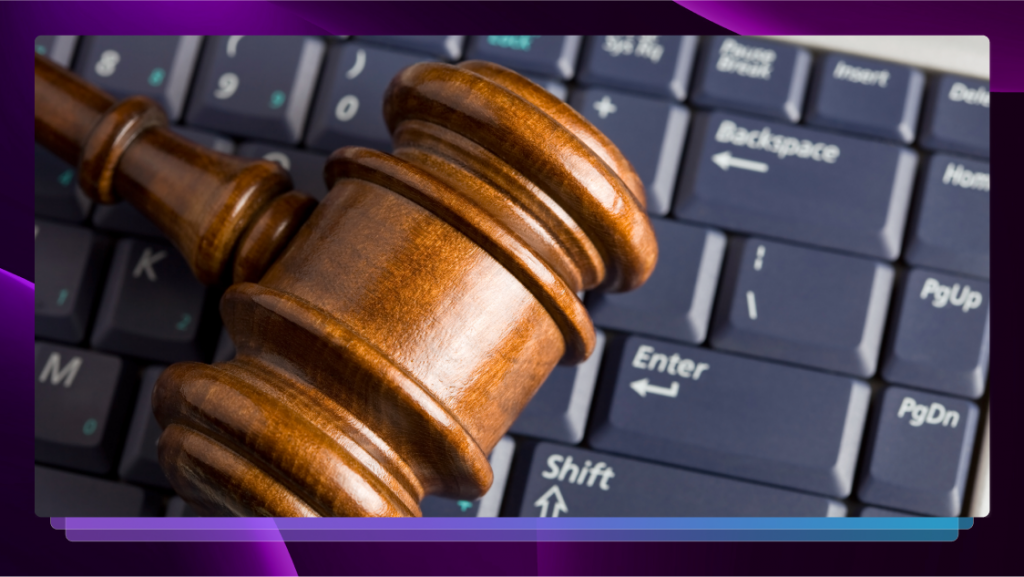Behind the camera of successful legal video depositions
Wiki Article
The Relevance of Legal Video Depositions in Modern Legal Services: What You Ought to Know
Legal video depositions have actually come to be necessary in today's legal landscape. They give a multidimensional view of witness testaments that typical transcripts just can not match. By recording both spoken and non-verbal communication, these depositions improve the overall understanding of a witness's credibility. The performance of video clip depositions pivots on various aspects, consisting of compliance with lawful requirements and finest practices. Exploring these components exposes their true significance in contemporary lawful solutionsWhat Are Lawful Video Clip Depositions?
Lawful video clip depositions function as an important device in the lawsuits procedure. They entail taping witness testaments in a video style, catching both non-verbal and verbal interaction. This technique permits lawyers to record the demeanor, expressions, and responses of witnesses, offering a richer context for the testimony. Typically conducted in a regulated atmosphere, these depositions are led by lawyers that ask questions while a court press reporter records the discussion. The resulting video clip can be critical for test preparation, as it enables lawyers to analyze the reputation of witnesses and refine their techniques. Furthermore, legal video clip depositions can be used in various legal contexts, varying from civil disputes to criminal situations. The aesthetic and auditory elements of video depositions improve the discussion of evidence, making it a crucial element in the modern-day legal landscape. Generally, they contribute substantially to the performance and efficiency of lawful process.
Advantages of Video Clip Depositions Over Traditional Techniques
Video depositions offer countless advantages contrasted to typical approaches of taking witness testaments. One significant benefit is the capacity to catch both aesthetic and audio aspects, supplying an extra complete document of the witness's statements. This double layout enhances quality and permits lawyers to reference certain subtleties throughout trial preparation. Additionally, video clip depositions promote remote involvement, making it much easier for witnesses that might be unavailable for in-person appearances due to geographical restrictions or health and wellness issues.Moreover, video depositions can accelerate the general deposition process, minimizing the moment and prices connected with travel and logistics. They additionally enhance ease of access, as tape-recorded depositions can be conveniently shared among lawful teams and referenced at any kind of time. This ease adds to far better situation monitoring and prep work. In general, video depositions stand for a contemporary, efficient method to gathering witness testimonies, straightening with the developing needs of the lawful career.The Role of Body Movement and Tone in Testimonies

In legal video depositions, body movement and tone play essential functions in communicating a witness's reliability and trustworthiness. Nonverbal cues can offer understandings right into a witness's emotion, affecting just how their testimony is perceived. Recognizing the impact of these components is necessary for jurors and attorneys alike when reviewing the reliability of a testimony.
Nonverbal Communication Insights
While spoken communication is frequently emphasized in legal statements, nonverbal hints such as body movement and tone play an important function in sharing credibility and emotion. Viewers of depositions may note that a witness's pose, motions, and faces can greatly affect perceptions of reliability. Constant eye call may signify confidence, while staying clear of look might suggest deceit or pain. The tone of voice-- its volume, pitch, and pace-- can present feelings of sincerity or uncertainty. Lawyers have to be in harmony with these nonverbal signals, as they often offer vital context that complements talked words. Recognizing these subtleties can boost the performance of depositions and affect the result of legal process.Psychological Tone Influence
The emotional tone communicated throughout lawful statements greatly affects exactly how a witness is perceived. Body movement, singing inflections, and faces play essential duties fit the story of a testament. A witness exhibiting confidence through constant eye call and a calm tone can impart a sense of integrity and involvement. On the other hand, signs of anxiousness, such as fidgeting or a shaky voice, might bring about suspicion regarding their account. The nuances of emotional expression can influence the interpretation of facts, making it necessary for lawyers to identify these signs. In video depositions, the acoustic and aesthetic elements combine, highlighting the relevance of psychological tone in sharing genuineness and reliability within the legal process.Trustworthiness and Reliability
A vital consider establishing reliability and credibility during testaments hinges on the witness's body movement and intonation. Viewers typically depend on non-verbal signs-- such as eye call, posture, and motions-- to analyze a witness's genuineness. A witness that preserves eye contact and presents open body language may be regarded as even more straightforward and reliable than one who stays clear of eye call or appears shut off. Additionally, tone of voice plays a vital function; a constant, calm tone can strengthen the reliability of the statement, while changes in pitch or quantity may increase doubts. Ultimately, the combination of body movement and singing tone considerably influences just how a witness's statements are obtained and interpreted in a legal context.Finest Practices for Performing Video Depositions
Carrying out video depositions requires careful preparation and execution to guarantee a clear and efficient discussion of statement. First, it is essential to choose a quiet, well-lit location to reduce distractions and secure optimal video top quality. The tools ought to be examined ahead of time, including cameras, microphones, and illumination, to prevent technical issues throughout the deposition.Next, parties involved should evaluate the layout and procedures ahead of time, making sure that every person recognizes their duties. The deponent ought to be briefed on the process, consisting of exactly how to react plainly and concisely.Additionally, keeping a professional demeanor throughout the session is essential. This consists of avoiding from speaking over one another and validating that all questions are routed properly. Finally, it is vital to tape-record the deposition in a format that permits very easy playback and review, protecting the honesty of the testimony for future use.Lawful Considerations and Compliance Issues
Just how do legal factors to consider and conformity concerns influence the effectiveness of video depositions? Legal specialists should navigate a complex landscape of regulations, making sure that video clip depositions stick to jurisdictional rules and requirements. Conformity with legislations concerning personal privacy, consent, and recording methods is necessary. Acquiring explicit approval from all celebrations entailed is essential to avoid legal repercussions.Additionally, the admissibility of video clip proof in court can pivot on compliance with procedural requirements. Guaranteeing that the devices made use of meets technological criteria is likewise crucial, as low quality can weaken the deposition's reliability.Moreover, attorneys must know any specific state legislations that regulate video depositions, as these can differ significantly. Failing to resolve these considerations can not only jeopardize the integrity of the deposition but additionally this page affect the total case approach, eventually impacting the customer's lawful outcomes.How Video Clip Depositions Effect Jury Perception
While video clip depositions can function as effective devices in legal proceedings, their influence on court understanding is significant. The visual and acoustic elements of video clip recordings offer jurors with a much more detailed understanding of witness demeanor, reputation, and psychological actions. This multimedia method can enhance the jurors' capacity to assess the integrity of testimony contrasted to standard text-based transcripts.Moreover, video clip depositions enable jurors to observe body movement, intonation, and face expressions, every one of which can impact their interpretation of the witness's declarations. The visibility of a witness on screen can humanize them, cultivating empathy and connection, which might sway jurors' point of views. Conversely, a witness that shows up untrustworthy or evasive on video might cause unfavorable assumptions that influence a court's choice. Ultimately, the vibrant nature of video clip depositions plays an essential role fit just how jurors interpret proof and reach their decisions.The Future of Video Clip Depositions in Legal Method
As innovations in technology continue to reshape the legal landscape, the future of video clip depositions is poised for considerable advancement. Advancements such as artificial intelligence, virtual reality, and boosted video conferencing devices are anticipated to improve the deposition procedure and enhance ease of access. Lawyers may utilize AI-driven analytics to evaluate witness trustworthiness and case strength much more effectively.Moreover, the combination of online fact might allow juries to experience immersive simulations of depositions, offering deeper context and understanding. Furthermore, the trend toward remote depositions is likely to continue, supplying better flexibility for lawyers and customers alike.As remote job becomes increasingly normalized, video depositions will likely come to be typical technique, lowering expenses and time restraints connected with conventional approaches. Generally, these technical improvements promise to improve click to find out more the effectiveness, performance, and availability of video depositions in lawful method, eventually changing how attorneys prepare for trial.Regularly Asked Concerns
Just How Much Do Lawful Video Depositions Usually Price?

Can Video Depositions Be Used in Any Type Of Type of Situation?
Video depositions can be made use of in different kinds of instances, including civil, criminal, and household law. Their versatility enables lawyers to existing witness statements effectively, adapting to the certain demands of various lawful scenarios.What Devices Is Needed for a Video Clip Deposition?
To carry out a video deposition, crucial equipment includes a high-quality cam, microphone, lighting, and a reputable recording gadget. Additionally, a computer system with modifying software may be required for post-production and formatting the last video clip.The length of time Does a Common Video Deposition Last?
A normal video deposition lasts between two to 4 hours, relying on the intricacy of the situation and the variety of inquiries postured. Extensive sessions might happen, but breaks are usually incorporated for participant comfort.

Are Video Clip Depositions Admissible in Court?
Video depositions are normally acceptable in court, offered they stick to lawful standards and regulations of evidence. Their use improves quality and preserves witness testament, assisting in the judicial process during trials and hearings. Legal video clip depositions have actually ended up being crucial in today's lawful landscape. In addition, lawful video depositions can be made use of in different lawful contexts, varying from civil disagreements to criminal cases. Furthermore, video clip depositions promote remote involvement, making it easier for witnesses who might be inaccessible for in-person looks due to geographical constraints or health and wellness issues.Moreover, video clip depositions can expedite the overall deposition procedure, decreasing the time and prices linked with travel and logistics. Guaranteeing that the devices utilized satisfies technological standards is additionally vital, as bad high quality can undermine the deposition's reliability.Moreover, attorneys have to be conscious of any kind of certain state legislations that govern video clip depositions, as these can vary greatly. In addition, the fad toward remote depositions is likely to persist, using better flexibility for clients and attorneys alike.As remote work comes to be progressively stabilized, video clip depositions will likely come to be standard technique, reducing costs and time restrictions associated with typical methods.Report this wiki page